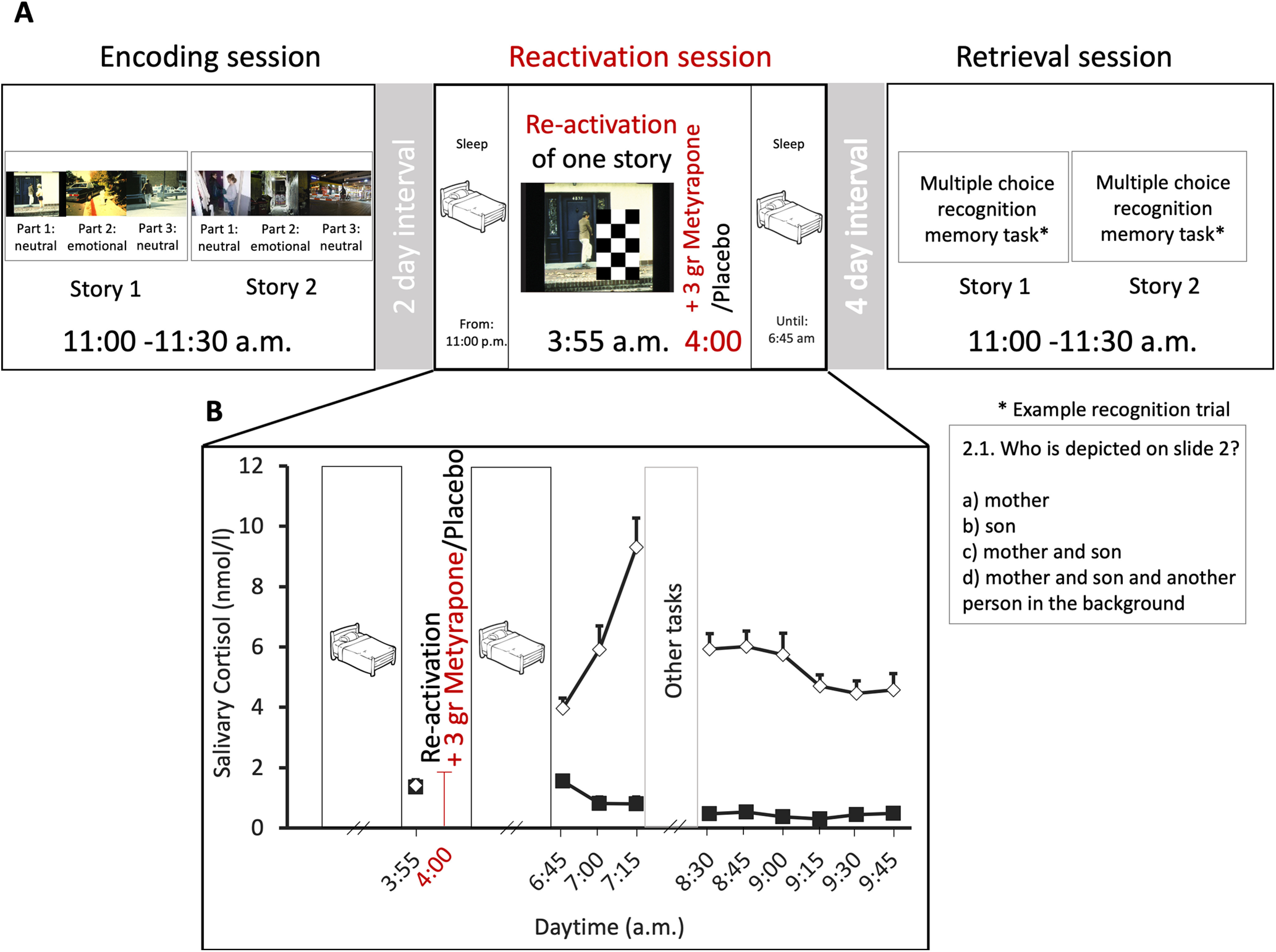Figure 1.

Experimental procedure (A) and cortisol levels (B). A, Using a within-subject design, each participant was tested once in a metyrapone and once in a placebo condition that both comprised three sessions. The order of conditions was counterbalanced across participants. Both conditions comprised three sessions (encoding, reactivation, retrieval). At the encoding session, participants were presented two stories. At the reactivation session (2 d after encoding), participants slept in the laboratory. After awakening at 3:55 A.M., one of the two stories was reactivated, and metyrapone or placebo was administered at 4:00 A.M. They then slept again until 6:45 A.M. At the retrieval session (7 d after encoding), memory was tested for both the reactivated and the non-reactivated story with a multiple-choice recognition memory task. B, Cortisol levels: mean ± SE salivary cortisol concentration for the reactivation session. Baseline cortisol levels before reactivation and substance administration (at 3:55 A.M.) did not differ between conditions. Metyrapone (black squares) administered at 4:00 A.M. suppressed the rise in morning cortisol seen in the placebo condition (white diamonds, salivary cortisol measured from 6:45 to 9:45).
